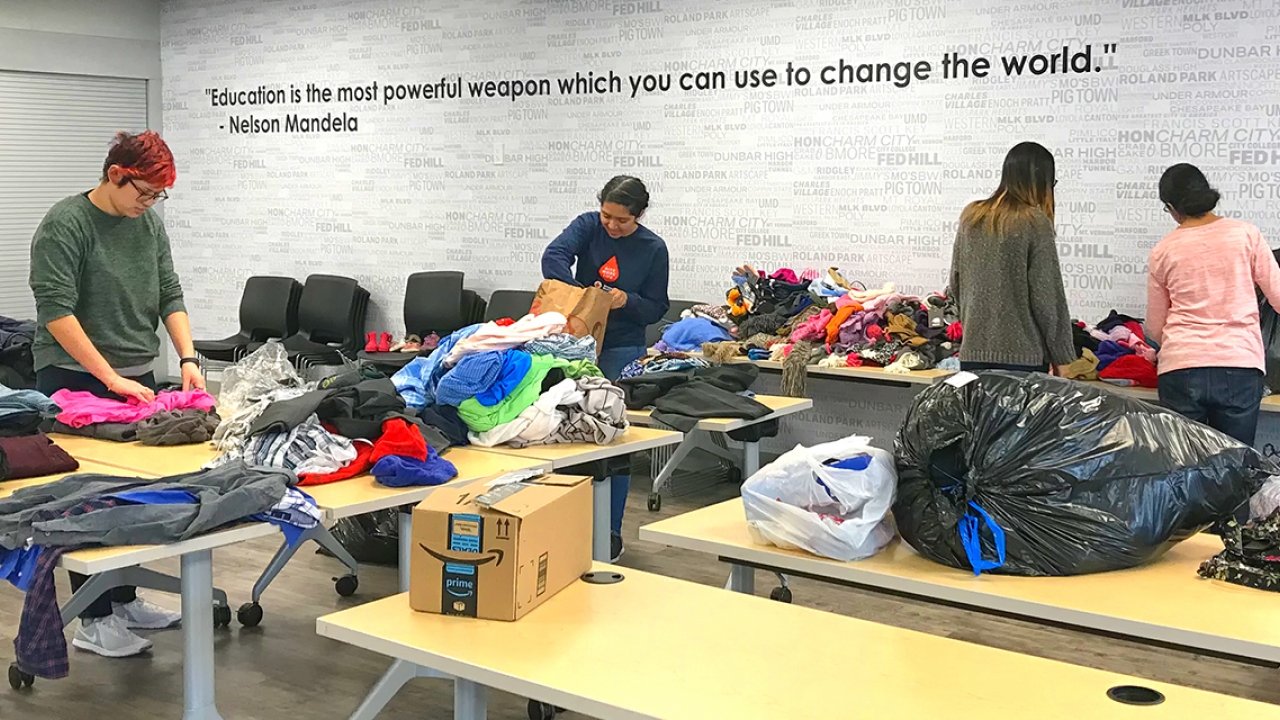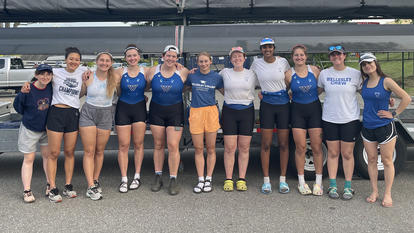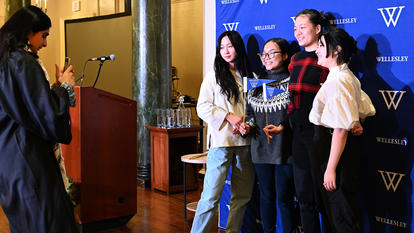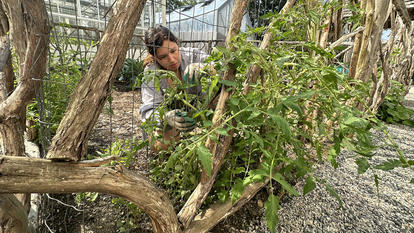Alternative Break Brings Student Volunteers to Asheville, N.C., and Baltimore

Twenty-four Wellesley students spent Wintersession making a difference through direct service on two Alternative Break trips organized and supported by Civic Engagement, a division of Wellesley Career Education. Participants addressed issues of educational equity affecting Baltimore communities and promoted environmental sustainability in Asheville, N.C., and got a firsthand look at the positive impact nonprofit organizations are having on their communities.
“One person can’t reach everybody, but volunteering has taught me that small, collective efforts can turn into larger impacts,” said Abena Asare ’18, one of the 10 students who traveled to Baltimore.
The Baltimore group worked with the Living Classrooms Foundation, which uses urban, natural, and maritime resources to help strengthen communities and give local youth hands-on education and job training. Wellesley students cleaned turtle habitats, prepared materials for K-12 students to make bird feeders, and sorted donations of clothes and food for Baltimore residents.
“Living Classrooms Foundation has taught me that education is not only for children; education is for parents, for community members, for everyone,” said Baltimore site leader Emily Vargas ’20.
In Asheville, N.C., 14 students and Rebecca Garcia, 2020 class dean, volunteered with the nonprofit Asheville GreenWorks, the area’s first environmental group, established in 1973, which promotes sustainability, self-sufficiency, protection and love for the environment, and community empowerment. The group dug up large metal culverts buried in the ground, removed litter along the French Broad River, and cultivated an elementary school garden.
Sophia Khoury ’20, the Ashville site coordinator, described the city as vibrant and environmentally conscious, but noted that it has had to overcome its industrial past. “Our job as volunteers is to work on their different projects, such as creek restoration and planting a pollination garden at a local elementary school,” Khoury said. “It has been really neat to see how one group works with a community to promote sustainability and awareness of environmental issues.”
Alternative Break builds on the history of service at Wellesley and encourages students to see themselves as change makers who can have an impact on issues affecting our society and the world. A core component of the experience is a period of intentional reflection woven into the evening of every service day, during which students think about how their experiences are affecting their understanding of their roles as future change agents, no matter what career path they choose.
Civic Engagement is now accepting applications for two trips for spring Alternative Break, March 24-31: working with COAP, Inc. in Harlan, Ky., around issues of sustainable living, and with Woodland Harvest Mountain Farm in West Jefferson, N.C., with a focus on holistic health. Applications are due February 9 at noon through Handshake. As a Ministrare Fellow, Emily Moss ’19 leads the Alternative Break planning; contact her at civicengagement@wellesley.edu.



